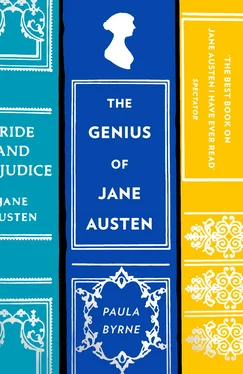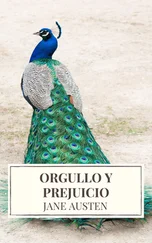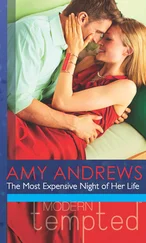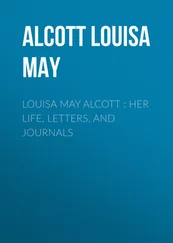By all accounts, Jane Austen was an intelligent observer of the intrigues, emotions and excitement of private theatricals; of rehearsals, the reading over of scripts, and the casting of parts. James-Edward Austen’s Memoir claims that his aunt Jane ‘was an early observer, and it may be reasonably supposed that some of the incidents and feelings which are so vividly painted in the Mansfield Park theatricals are due to her recollection of these entertainments’. 33
In Mansfield Park , Jane Austen devoted her creative energies to the rehearsal process rather than the performance. Furthermore the singular strength of the theatrical sequence lies in its depiction through the eyes of an envious observer. It has been suggested that in writing the Lovers’ Vows sequence Austen distilled some of her own experience as an outsider, a partially excluded younger sister. 34There is, however, no evidence to suggest that Jane was excluded from the family theatricals. Even if her youth prevented her from taking part in the actual performances, she began, at this time, to write her own short playlets. These were probably performed as afterpieces to the main play.
Henry Fielding’s outrageous burlesque The Tragedy of Tom Thumb was ‘acted to a small circle of select friends’ on 22 March 1788 at Steventon, and this was followed some time later by ‘a private Theatrical Exhibition’. Regrettably, James’s prologue to the latter gives no indication of the play performed, though it imitates Jacques’s ‘seven ages of man’ speech. The prologue also satirises the hypocrisy of the sentimental age where ‘to talk affecting, when we do not feel’ is described as a form of ‘acting’. 35The family perhaps wrote the entertainment themselves. It was probably at this time that Jane wrote and participated in her own burlesque playlet, ‘The Mystery’. 36
The last plays performed at Steventon in 1788–89 were The Sultan: or A Peep into the Seraglio , a farce by Isaac Bickerstaffe, and another farce by James Townley, High Life Below Stairs . Bickerstaffe’s farce was first performed in London in 1775, but had only been recently published, in 1784. It was yet another comedy that depicted a bold, spirited heroine, posing a challenge to male prerogative and authority. Roxalana is an Englishwoman who has been captured for the Sultan’s seraglio. She displaces the favourite concubine, Elmira, by winning the honourable affections of the Sultan. Moreover, she condemns his harem and demands the freedom of all his wives: ‘You are the great Sultan; I am your slave, but I am also a free-born woman, prouder of that than all the pomp and splendour eastern monarchs can bestow.’ 37James’s epilogue was yet another provocative declaration of female superiority over men, opening with the words,
Lord help us! what strange foolish things are these men,
One good clever woman is fairly worth ten. 38
Two of the most popular contemporary choices for private representation were Fielding’s Tom Thumb and Townley’s High Life Below Stairs . The Burneys acted Tom Thumb in Worcestershire in 1777, ten years before the Austens chose it for performance. The part of the diminutive hero Tom Thumb was often played by a child, whose high-pitched voice would add to the comic incongruity. 39
James Townley’s satire on plebeian manners, High Life Below Stairs (1759), depicts a household of lazy servants who behave as badly as their masters. They ape their masters’ manners, assume their titles, drink their expensive wine, gamble and visit the theatre. Like Gay’s Beggar’s Opera and Foote’s Mayor of Garett , Townley’s farce was a comedy that used low life to criticise high society. It was also an extremely popular choice for amateur theatricals. In part, this was because it was more prudent to poke fun at the lower orders in the safety of one’s own home than in the professional theatre house. In 1793 a performance of High Life Below Stairs in an Edinburgh public theatre incited a row between a group of highly offended footmen and their masters.
George Colman the Younger’s comedy about social transformations, The Heir at Law , was also a popular choice for the gentry to indulge themselves in stereotypical ‘low’ roles. Austen was to explore this contentious issue in Mansfield Park when the heir of Mansfield insists on staging The Heir at Law so that he can play the stage Irishman, Duberley.
Jane’s playlet, ‘The Visit’, dedicated to James, contains a quotation from High Life Below Stairs , which suggests that she composed it around the same time as the family performance of Townley’s farce, perhaps as a burlesque afterpiece. Austen repeats Townley’s phrase, ‘The more free, the more welcome’, in her play. The allusion seems to be a nod to the main play performed that day at Steventon. Austen’s habit of repeating phrases from the plays performed, or even merely contemplated for performance, at Steventon remained with her for a long time. Though Hannah Cowley’s play Which is the Man? was considered for performance, it was finally rejected. Yet Austen quoted a phrase from it in a letter dated 1810, some twenty-nine years later. 40
Which is the Man? is alluded to in Austen’s ‘The Three Sisters’, written around 1788–90 ( MW , p. 65). In this story, a spoilt young woman demands to play the part of Lady Bell Bloomer, just as Eliza had wished to in the 1787–88 Christmas theatricals. Again, a quotation from Cowley’s popular comedy The Belle’s Stratagem appears in a letter of 1801: ‘Mr Doricourt has travelled; he knows best’ ( Letters , p. 73).
Though Eliza was now in Paris and unable to partake in the Steventon theatricals, the Cooper cousins came to Steventon for Christmas 1788–89 and Jane Cooper filled the gap left by Eliza. In a letter to Philadelphia, Eliza had hastily, though wistfully, scribbled a last message: ‘I suppose you have had pressing accounts from Steventon, and that they have informed you of their theatrical performances, The Sultan & High Life below Stairs, Miss Cooper performed the part of Roxelana [ sic ] and Henry the Sultan, I hear that Henry is taller than ever.’ 41No prologue or epilogue by James has survived for High Life Below Stairs , but the prologue he provided for Bickerstaffe’s comedy is (confusingly) dated 1790 and states it was ‘spoken by Miss Cooper as Roxalana’. 42
The Sultan and High Life Below Stairs ended the theatricals at Steventon, although there is a family tradition which claims that they were resumed in the late 1790s. The main reason why actor-manager James abandoned private theatricals seems to be that he was turning his mind to other literary interests, namely the production of a weekly magazine, The Loiterer . This periodical, like the theatricals at Steventon, was also to prove an important influence on Jane Austen’s early writings.
Henry Austen tells us in his ‘Biographical Notice’, published in the first edition of Northanger Abbey and Persuasion , that his sister Jane was acquainted with all the best authors at a very early age ( NA , p. 7). The literary tastes of Catherine Morland have often been read as a parody of the author’s own literary preferences. 43Catherine likes to read ‘poetry and plays, and things of that sort’, and while ‘in training for a heroine’, she reads ‘all such works as heroines must read to supply their memories with those quotations which are so serviceable and so soothing in the vicissitudes of their eventful lives’ ( NA , p. 15): dramatic works, those of Shakespeare especially, are prominent among these. Twelfth Night , Othello and Measure for Measure are singled out. Catherine duly reads Shakespeare, alongside Pope, Gray and Thompson, not so much for pleasure and entertainment, as for gaining ‘a great store of information’ ( NA , p. 16).
Читать дальше












